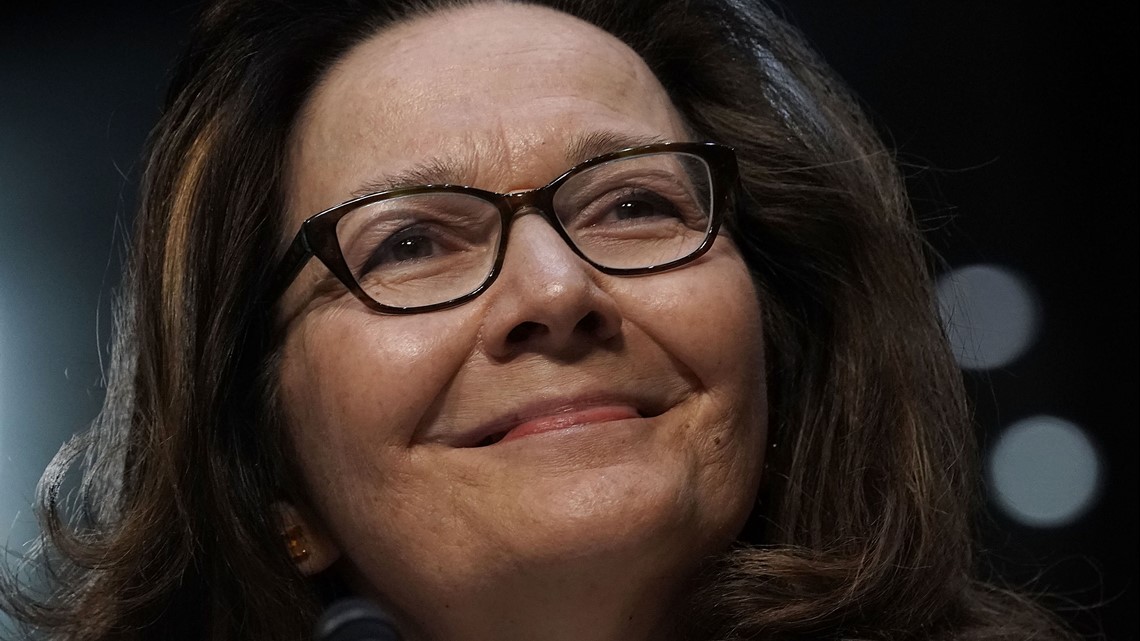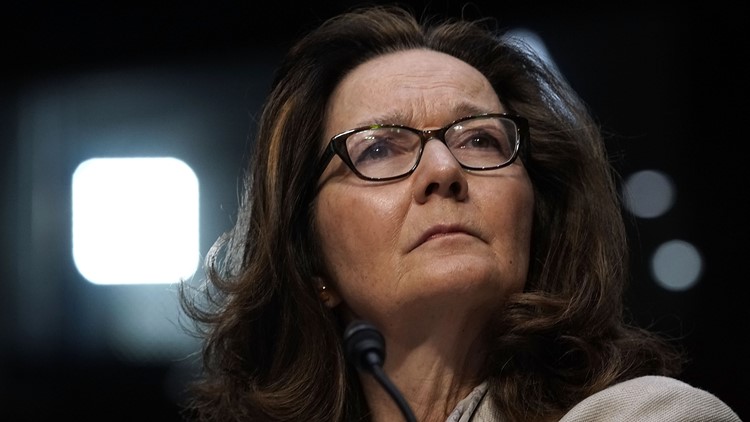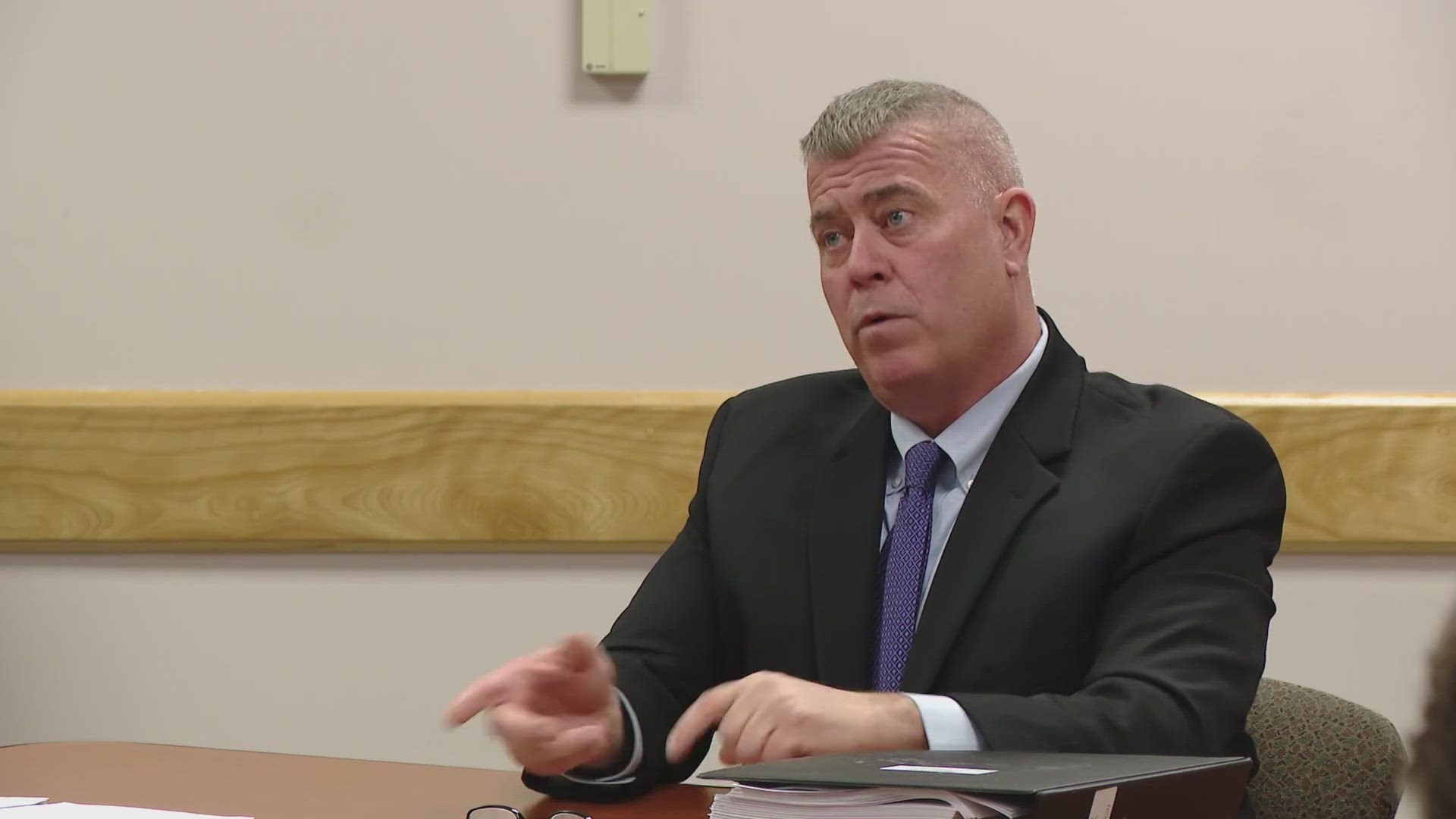Gina Haspel promised senators Wednesday that the CIA will not revive its outlawed torture program if she is confirmed as the agency's first female director.
"I understand that what many people around the country want to know about are my views on CIA’s former detention and interrogation program," Haspel told the Senate Intelligence Committee at her confirmation hearing. "Having served in that tumultuous time, I can offer you my personal commitment, clearly and without reservation, that under my leadership CIA will not restart such a detention and interrogation program.”
Haspel said she would not resume the program, even if President Trump asked her to do so. Trump has said in the past that he believes torture is effective and would consider reviving its use.
"I would not restart, under any circumstances, an interrogation program at CIA," Haspel said when pressed by Sens. Susan Collins, R-Maine, and Martin Heinrich, D-N.M.
The Washington Post reported that Haspel considered withdrawing her nomination late last week because of her concerns that a contentious hearing about torture could damage the CIA's reputation, as well as her own. White House officials convinced her not to pull out.
Intelligence Committee members focused much of their questioning on Haspel's 2002 oversight of a secret "black site" in Thailand where suspected terrorists were subjected to waterboarding and confined in coffin-shaped boxes for hours during the George W. Bush administration. Torture techniques were used after the 9/11 terrorist attacks against America.
Haspel defended the agency's actions, saying the use of so-called "enhanced interrogation techniques" was deemed legal at the time by the Department of Justice and by President Bush. However, she said she supports the "higher moral standards" that the country has since adopted that ban torture.
"I would not put CIA officers at risk by asking them to undertake risky, controversial behavior again," she said.


Haspel, who spent more than 30 years as a covert agent before becoming the CIA's deputy director last year, also faced questions about her involvement in the destruction of 92 videotapes that showed a prisoner being waterboarded. Waterboarding is a technique that simulates the experience of drowning.
She said she wrote the 2005 order to destroy the tapes at the request of her boss, Jose Rodriguez, who was head of the CIA's clandestine service at the time. Rodriguez issued the order without informing then-CIA director Porter Goss ahead of time, Haspel said.
Haspel said she supported the destruction of the tapes at the time because she feared that someone would release them publicly and jeopardize the safety of CIA officers seen on the tapes.
"We were worried about an irresponsible leak of our officers' faces to the world," she said. However, she said the CIA director should have been informed of the order before it went out.
It's not clear whether Haspel's promises will convince a majority of senators to confirm her. The Intelligence Committee is expected to vote as early as this month on whether to recommend her confirmation to the full Senate.
Republicans hold a slim 51-49 majority in the Senate, and Sen. Rand Paul, R-Ky., has vowed to oppose Haspel because of her role in the torture program. Sen. John McCain, R-Ariz., is suffering from brain cancer and may not be available to vote. No Democrats have announced support for Haspel so far.
Vice Chairman Mark Warner, D-Va., said he was glad that Haspel expressed support for the current ban on torture but said "no one should get credit simply for agreeing to follow the law."
"That’s the very least we should expect from any nominee, and certainly from the Director of the Central Intelligence Agency," he said.
If confirmed, the 61-year-old Kentucky native would be the first woman to lead the spy agency. She would replace Mike Pompeo, who was recently confirmed by the Senate as the new secretary of State.
Haspel, who was introduced Wednesday by former Sens. Evan Bayh, D-Ind., and Saxby Chambliss, R-Ga., said she is especially proud to have been the first woman to serve as the second-highest-ranking officer in the Clandestine Service.
"From my first days in training, I had a knack for the nuts and bolts of my profession," she testified. "I excelled in finding and acquiring secret information that I obtained in brush passes, dead drops, or in meetings in dusty back allies of third world capitals."
"I recall my first foreign agent meeting was on a dark, moonless night with an agent I’d never met before," Haspel said. "When I picked him up, he passed me the intelligence and I passed him extra money for the men he led. It was the beginning of an adventure I had only dreamed of."
Although President Obama and a previous Congress banned the use of torture, Trump has talked about the possibility of reviving the harsh interrogation techniques and has defended Haspel for being "tough on terrorists."
Haspel has strong support from former CIA directors who served in both Democratic and Republican administrations, including John Brennan, who served as director in the Obama administration. Brennan is an outspoken critic of Trump, but called Haspel "highly qualified" in a recent tweet and urged senators to view her with an open mind.
However, Democrats have complained that the CIA has only publicly released documents that make Haspel look good and failed to release details about the extent of her involvement in torture.
Haspel told senators Wednesday that she was told by supporters that her chances of being confirmed would increase if she agreed to declassify more information about herself, but she said she wants to follow the same declassification guidelines that would apply to anyone else in the CIA.
"I am deciding not to make an exception for myself," she said.
Haspel's opponents include more than 100 retired admirals and generals, who say that the use of torture by the CIA encourages foreign governments to torture American soldiers and provides propaganda for extremists who want to attack the U.S.
A new letter released Wednesday from more than 100 former U.S. ambassadors said Haspel's confirmation would undermine diplomatic efforts to discourage torture by tyrants in other countries.
Even though Haspel rejected the future use of torture at Wednesday's hearing, "the point will remain that her record of involvement in torture was judged worthy of and compatible with holding the CIA’s highest office," the ambassadors wrote. The message that will send dictators, the letter said, is that "their behavior is no different from ours."
In 2014, the Intelligence Committee issued a damning report of the CIA's torture program that concluded that the interrogation of detainees was far more brutal than the CIA disclosed and that it failed to extract valuable information from prisoners.
Haspel promised to work closely with the committee if she is confirmed.
"As both a career intelligence officer and an American citizen, I am a strong believer in the importance of oversight," she said. "Simply put, experience has taught us that CIA cannot be effective without the people’s trust. And we cannot hope to earn that trust without the accountability that comes with Congressional oversight."



